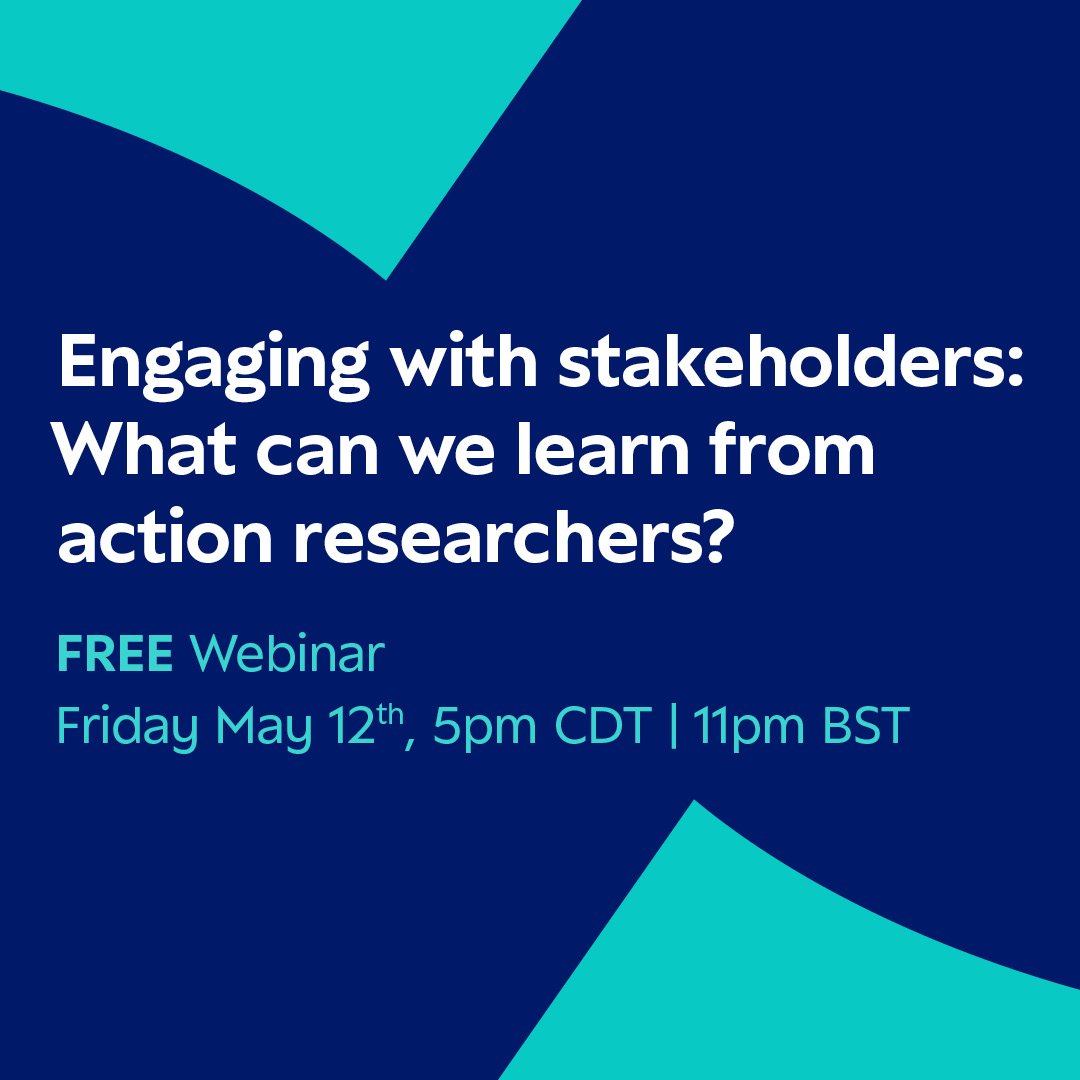Positionality and Data Collection
by Janet Salmons, PhD Research Community Manager for Sage Methodspace
Where are you coming from? Insiders, outsiders and researcher positionality
I have had an experience/ I have observed a situation/ I am a member of a culture or community, and I want to understand it better.
I have identified a gap in the research/literature, and I want to understand it better.
In broad brush strokes, these are two ways researchers identify problems to study. In the first example, we look at real problems of the world into the with the discipline of scholarly inquiry. In the second example, we look at where questions remain given existing scholarly study of a problem, and identify what new research could contribute.
Researchers who identify a problem based on their own connection to it, who are members of a group, culture, or community might take an insider or emic position. Insider status can be advantageous because as a trusted member the researcher might have unique access to participants, documents, or other sources. They might comprehend dimensions and contexts of a problem or population more fully. On the other hand, they might bring biases to the study because they find it hard to step back from long-held perspectives. They might find it hard to accept negative findings about people, places, or phenomena to which they are close.
The researchers who identify a research problem that has been inadequately studied might have a different set of considerations, particularly when the study involves human participants. From an outsider or etic position. the researcher might have to allocate time, possibly an extensive amount of time, to build relationships and trust needed to gain access to a research setting and conduct the study.
Robert Stake (1995) describes these motivations as:
Etic issues [are] brought in by the researcher from the outside. Etic issues are … sometimes issues of a larger research community, colleagues and writers. Emic issues are the issues of the actors, the people who belong to the case. These are issues from the inside. (p. 20)
Etic, emic, or somewhere in between?
Of course not all circumstances can be definitively categorized as etic or emic. We might be a part of a community, or have demographic characteristics in common with the population, but not have insider knowledge about the problem to be investigated. We might be an outsider, but still have strong feelings or potential conflicts of interest related to the research problem. One is not right or wrong - as with many things associated with research, the appropriate choice depends on a number of factors.
Importantly, researchers should be self-aware and transparent to the reader. Some might think that positionality is a consideration primarily for qualitative researchers, but that is not true. All researchers should be responsible to their readers, and be clear about how their positions influence research design, analysis, and interpretation.
This multidisciplinary collection of open-access articles offers examples of each type: insider, outsider, and hybrid or mixed.
Emic - Insider Positions
Foster, J. (2009). Insider Research with Family Members who have a Member Living with Rare Cancer. International Journal of Qualitative Methods, 8(4), 16-26. https://doi.org/10.1177/160940690900800404
In this article the author explores insider research in relation to family members facing a diagnosis of rare cancer, using her experiences as one such family member undertaking doctoral research into journeys similar to hers. The “insider” issue is explored through three realms: the ethical realm, including issues of “fitness” to undertake the research; the methodological realm, including how data are obtained and used; and the trustworthiness realm, including research rigor. The exploration of her insider experiences includes personal challenges in relation to facing familiar emotionally charged experiences, insights gained as a result of her insider status, and her ability to join with participants in ways that might not be possible for an outsider. In the paper the author challenges taken-for-granted assumptions that trustworthiness can be assured only from the position of “objective” researcher. Rather, this analysis places knowledge gained through the processes and products of research as constituted and contextualized.
Kinitz, D. J. (2022). The Emotional and Psychological Labor of Insider Qualitative Research Among Systemically Marginalized Groups: Revisiting the Uses of Reflexivity. Qualitative Health Research, 32(11), 1635-1647. https://doi.org/10.1177/10497323221112620
In response to decades-long exclusionary practices, academic institutions are now recruiting early career researchers (ECRs) from systemically marginalized populations who specialize in equity-related research. As a result, these ECRs are likely to conduct research within their communities on topics that have personal relevance—insider research. Methodological training for insider research places an emphasis on methods, such as reflexivity, to ensure rigor; however, the emotional and psychological impacts of these research methods on the researcher are seldom discussed. Therefore, I use analytic autoethnography to illustrate the embodied impacts of conducting insider research using an example of personal relevance and argue that methodological practices require an embodied reflexivity that centers the researcher and the impacts the research has on them. This paradoxically rewarding and taxing work necessitates changes in methodological training and practice, institutional support, and an openness to innovation when calling for equity, diversity, and inclusion in the academy.
Etic - Outsider Positions
Joseph, F. I., Earland, J., & Ahmed, M. A. (2021). Experience of Conducting Sensitive Qualitative Research as a Cultural Outsider: Formulation of a Guide for Reflexivity. International Journal of Qualitative Methods, 20. https://doi.org/10.1177/16094069211058616
Studies conducted by outsider researchers, who do not share the participants’ culture, language or other traits, are often complex. The positionalities of participants are rarely considered in qualitative research literature but their influence defines how they engage with the researchers and their research. There is little within the literature specifically written for novice qualitative researchers working as an outsider. In this article, the experience of conducting research on breastfeeding in Nigeria with Hausa–Fulani Muslim women has been used to reflect upon the challenges of researching as an outsider. Drawing upon this work, a guide has been developed for researchers working with a group from a different cultural, ethnic or socioeconomic background to their own. The guide includes social identity mapping of both researcher and participants, a consideration of the sensitivity, vulnerability and cultural identity lenses through which the identity of the researcher, participants, and context intersect to influence the study, and reflexive questions. Considering these questions before conducting a study can help researchers to anticipate and proactively develop mitigation strategies to address common methodological and ethical dilemmas they may encounter.
Vogels, C. (2019). A Feminist and “Outsider” in the Field: Negotiating the Challenges of Researching Young Men. International Journal of Qualitative Methods, 18. https://doi.org/10.1177/1609406919855907
For a number of years, women scholars have documented the difficulties faced when conducting research with male participants. This article contributes to this scholarship by reflecting on fieldwork I conducted with young men from a rural high school in Aotearoa/New Zealand. While the primary aim of this project was to collect moments of young men’s talk that spoke to their understandings of gendered norms within (hetero)romantic relationships, I also ended up gathering other data in the form of how they interacted with me and each other during our discussions. What resulted were a range of challenges that appeared connected to my “outsider” status. This article exposes these challenges and offers my reflections on why they occurred, how I managed them at the time, and what I learnt in the process.
Hybrid Positions
Ademolu, E. Birds of a feather (don’t always) flock together: Critical reflexivity of ‘Outsiderness’ as an ‘Insider’ doing qualitative research with one’s ‘Own People’. Qualitative Research, 0(0), 14687941221149596. https://doi.org/10.1177/14687941221149596
The article presents self-reflexive elaborations of negotiating ‘outsider’ positionalities as an ‘insider’ conducting a qualitative study of first-and-second-generation Nigerian diaspora communities in London, United Kingdom (UK) and the implications of this for the methodological documentation and interpretation of the research process as well as, the perspicuity of participants’ realities. Within the conceptual framing of ‘critical reflexivity’, this article details the author’s retrospective evaluation of the impact that his positionality – notably his outsiderness, and the biases, presuppositions and awkwardness accompanying this had at each stage of the research proccess. From formulating the research topic, methodological design and participant identification/recruitment, to data collection and analysis, this article reiterates the centrality of researcher reflexivity in qualitative inquiries of one’s ‘own people’. It concludes that while critical reflexivity affords a sensitivity and attention to challenges around methodological rigour and ethical research, ethnoracialised sameness between researchers and their supposed ‘own people’ is not always complementary, ideal and productive. This article makes important and original contributions to positionality debates in its specific application to the Nigerian diaspora advancing Black scholarship in the social sciences.
Bayeck, R. Y. (2022). Positionality: The Interplay of Space, Context and Identity. International Journal of Qualitative Methods, 21, 16094069221114745.
This article considers the way in which positionality shifts and is formed during a cross-cultural study to reveal the complexity of the insider-outsider status. As a researcher in a male-dominated game setting, I reflect on the research process and my interactions with participants to show the interplay of space, context, and identity in shaping a researcher’s status. I discuss the process of gaining access to the research site and participants, and data collection in relation to space, context, and identity. The interaction of my identities with space, and context informed my status at various moments. This interplay constructs a complex status of an “in-out-sider”. These findings prepare researchers to pay close attention to the role space, context, and identity play in shaping their positionality. This study serves as a welcome addition to the emerging literature on positionality, and to the situatedness of a researcher status.
Chen, L., Tse, H. W., Wu, D., & Young, M.-E. D. T. (2021). Cross-Cultural Researchers’ Positionality in Immigrant Health Research: Reflections on Conducting Research on Chinese Immigrants’ Experiences in the United States. International Journal of Qualitative Methods, 20. https://doi.org/10.1177/16094069211052190
While a growing body of research has examined immigrants’ health generally, less is known specifically about the impact of immigration policy on the health of Chinese immigrants, the second-largest foreign-born population in the United States. This is due, in part, to the lack of methodologically well-trained, cross-cultural researchers who have both the cultural and linguistic expertise and health knowledge to engage with Chinese immigrant populations. This paper addresses this gap by examining Chinese cross-cultural researchers’ roles in the qualitative phase of the Research on ImmiGrant HealTh and State policy (RIGHTS) project, which sought to assess how immigration policies shaped Chinese and other immigrants’ experiences in healthcare and other related sectors in California. We used reflexivity to assess Chinese cross-cultural researchers’ positionality of insiderness and outsiderness and its influence on the process of data collection (i.e., recruitment, conducting interviews, transcription, and translation). Our reflexivity guides the assessment of the opportunities (e.g., expanding the recruitment pool, engaging participants more effectively in interviews, ensuring data integrity, and discussing heterogeneity within the Chinese immigrant community) and challenges (e.g., the difficulty of recruiting low-income and undocumented immigrants, addressing participants’ in-depth thoughts, the time-consuming nature of transcription and translation, and the assessment of power dynamics) in conducting immigrant health research with the Chinese community. These results highlight the need for cross-cultural researchers to help build trusting relationships with ethnic-minority communities, thus gaining new insights and advancing knowledge within the field of ethnic minority health research. These insights can guide future investigations of Chinese and other immigrant communities as research on immigration policy and health expands.
Dwyer, S. C., & Buckle, J. L. (2009). The Space Between: On Being an Insider-Outsider in Qualitative Research. International Journal of Qualitative Methods, 8(1), 54-63. https://doi.org/10.1177/160940690900800105
Should qualitative researchers be members of the population they are studying, or should they not? Although this issue has been explored within the context of qualitative research, it has generally been reserved for discussions of observation, field research, and ethnography. The authors expand that discussion and explore membership roles by illustrating the insider status of one author and the outsider status of the other when conducting research with specific parent groups. The strengths and challenges of conducting qualitative research from each membership status are examined. Rather than consider this issue from a dichotomous perspective, the authors explore the notion of the space between that allows researchers to occupy the position of both insider and outsider rather than insider or outsider.
McDougall, J., & Henderson-Brooks, C. (2021). Lessons Learnt: Reflections on the ‘Insider-Outsider Divide’ in Working With Culturally and Linguistically Diverse Students in a Participatory Action Research Project. International Journal of Qualitative Methods, 20. https://doi.org/10.1177/16094069211066375
This paper explores the challenges and possibilities in research that involves students from Culturally and Linguistically Diverse (CALD) backgrounds, a group that tends to be overlooked in university settings and in the literature. We present a reflexive account of our experiences as researchers in a Participatory Action Research (PAR) study that explored the needs of CALD students from an enabling (access) program in a regional Australian university. PAR was chosen as a research method out of our desire to give these students a voice and to help break down any potential barriers because of our positioning as researchers. We draw on the concept of ‘researcher as insider-outsider’ (Merriam, 2016) to highlight these aspects in our analysis of the research process.
Some of our democratic objectives were achieved, but we also found there were limitations. Our position as Caucasian, Australian-born English speakers meant that we remained ‘outsiders’ to the CALD experience in fundamental ways. Further, our ‘insider’ status as researchers and lecturers was difficult to ignore, and institutional expectations created additional barriers. Some aspects of our data collection had unintended negative consequences, thus necessitating a change of course. On the plus side, however, consulting with students at each stage of the research helped to create more equal, trusting relationships and fostered empathetic understandings. The continual cycle of reflection and action assisted in ensuring we were responsive to the needs of participants. Although there are no guarantees, our experiences suggest that collaborative methods can assist in blurring the researcher-researched divide and give vulnerable communities greater agency in research. Despite the complexities and risks, exploring the needs of CALD students remains a worthwhile research endeavour. Any attempts to achieve equitable outcomes should highlight the capacity and potential of these students and not just their vulnerabilities.
Zou, G. (2023). Beyond “insider” and “outsider” in the Field: Reflections on the Roles of Human Geographers in Shifting Contexts. International Journal of Qualitative Methods, 22. https://doi.org/10.1177/16094069231169095
Previous scholarship in qualitative methodologies commonly classifies researchers’ status in the field into insiders or outsiders. However, the prevalence of participatory observation in numerous social science disciplines has blurred the insider/outsider dichotomy and highlighted that the levels of researchers’ involvement in the field are becoming context-specific and far more complex than just insider or outsider. Inspired by this tendency in fieldwork methodology, this paper seeks insights from a theory in communication studies, role theory, to understand researchers’ status regarding the roles they adopt in their interactions with research participants. Through reference to relevant sociological and psychological schools of thought, this paper highlights discourse as a crucial instrument for researchers’ role-making in fieldwork. This study draws on the author’s experience conducting fieldwork in a Central China city to demonstrate how a researcher engages in shifting field contexts by intentionally assuming numerous roles. To explore state-firm relations in local development, the author recruited two groups of research participants: government officials and business managers. The author actively learned and employed comparable discursive techniques in interactions with each group of participants, thereby assuming various roles in different contexts. These findings underscore the purposeful self-presentation and intentional role-playing/change as effective means for human geographers and researchers in extensive disciplines to be involved in participant groups for gathering data more efficiently. Meanwhile, the author’s self-reflection also illuminates the consequent impacts on research outcomes and ethical issues due to the involvement of researchers in their participants, therefore highlighting the necessity for detachment.





























Dr. Stommel brings clarity to the messy world of data collection on social media.